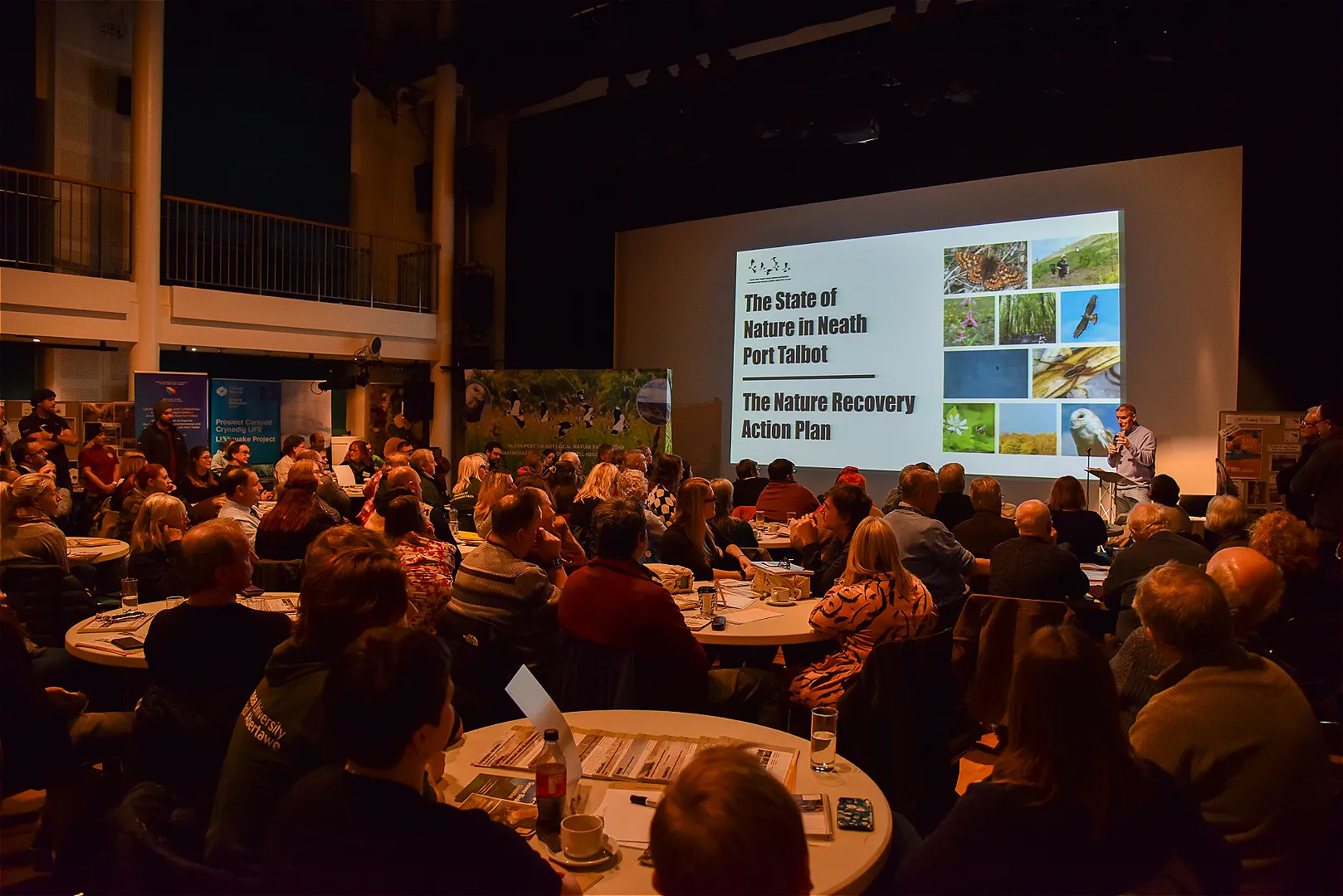Article
How we can all help nature thrive in Neath Port Talbot
The state of Nature in Neath Port Talbot and how we can all help improve it was the topic of discussion at a packed event in Neath’s Gwyn Hall.
The launch of the Neath Port Talbot Local Nature Partnership’s important document ‘The State of Nature and Nature Recovery Action Plan for Neath Port Talbot’ was held at the venue on February 28th, 2024.
It was hosted by ornithologist and BBC Springwatch Presenter Iolo Williams.
The partnership (known as NPT LNP) is made up of representatives from a wide range of organisations as well as people with an interest in local wildlife and land management. Membership is open to anyone with a genuine interest in biodiversity and wildlife conservation in NPT.
Neath Port Talbot Council’s Countryside and Wildlife Team provide secretarial, clerical and administrative support.
Neath Port Talbot has more than 950 hectares of land protected for nature, including 21 Sites of Special Scientific Interest (SSSIs). Many rare and vulnerable species live here including more than 70 species of key significance to biodiversity in Wales.
Neath Port Talbot boasts the only populations of Fen Raft Spider, Ox-tongue Broomrape and Blue Ground Beetle in Wales and is home to 21 UK Red Listed (critically endangered) breeding birds. Many also don’t realise that Margam Country Park, as well as being a lovely place to visit, is one of the best bat sites in Wales, supporting 14 of the 18 species of bats in the UK.
A spokeswoman for the NPT Countryside and Wildlife Team said: “Members of the NPT LNP, using the years of evidence now available to them, have been able to assess the state of nature in the county, establishing how nature is coping in NPT so that we can all take steps to protect it.”
Of the habitat types in NPT, Woodland and Open Mosaic habitats (on previously developed Industrial land) were classed as good, Moorland, Semi-Natural Grassland, Wetland, Coastal and Marine habitats were classed as poor while Urban, Inland Rock and Freshwater habitats were judged as ‘fair’.
The launch event included a presentation from Dr Charles Hipkin, the Chair of the LNP, a video made by children of Neath’s Cefn Saeson Comprehensive School telling us why nature is important to them and talks from LNP partners together with discussions on topics such as wetland restoration and how businesses can help biodiversity.
The LNP’s actions to aid the recovery of all habitats in Neath Port Talbot include:
Improve ecosystem resilience
Improve the resilience of habitats in NPT and particularly coastal habitats, grasslands, moorland, wetlands and marine habitats
Reach out
Increase awareness of the state of nature in NPT, reach out and engage with local communities and the younger generation
